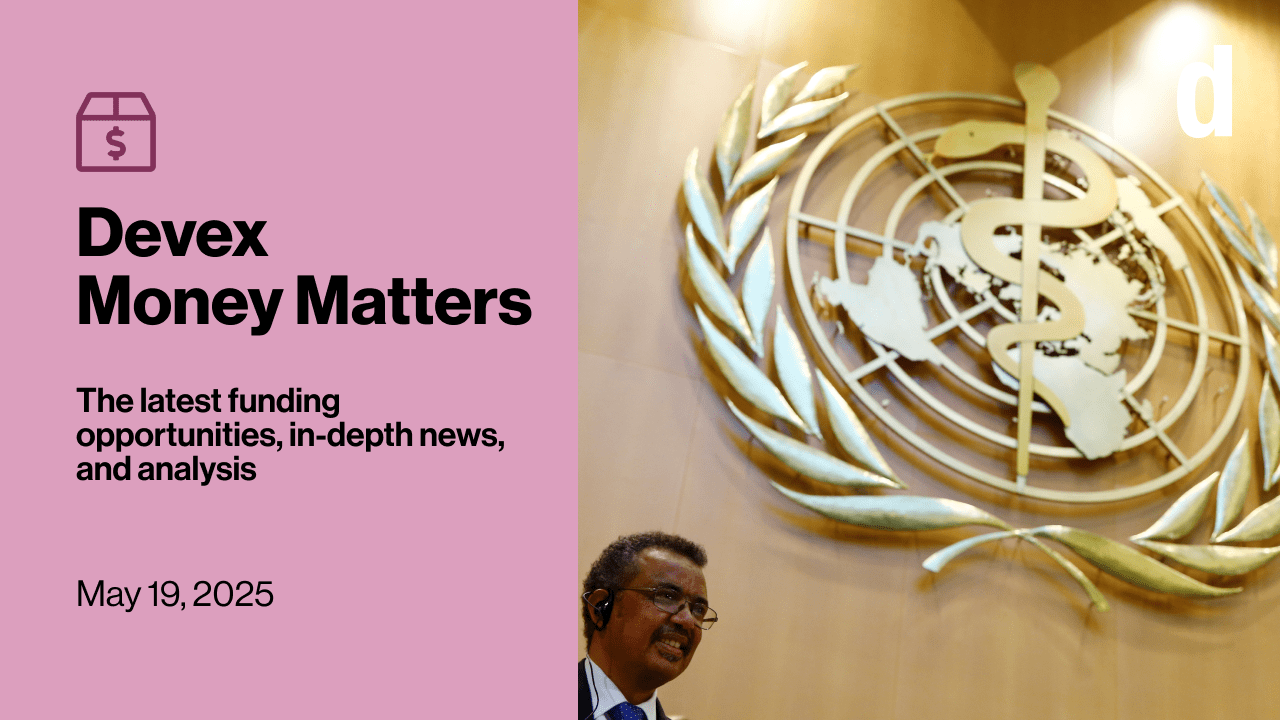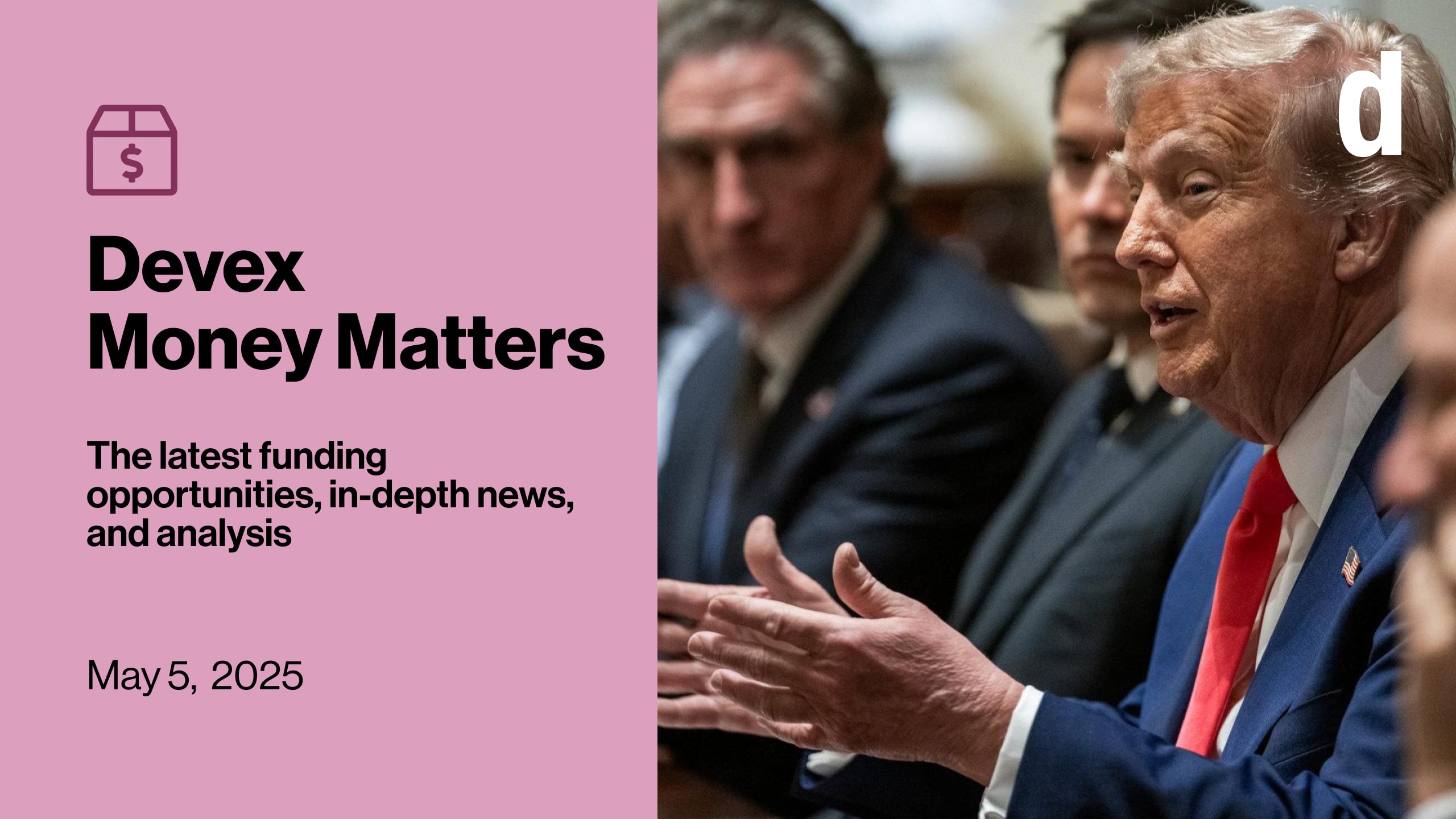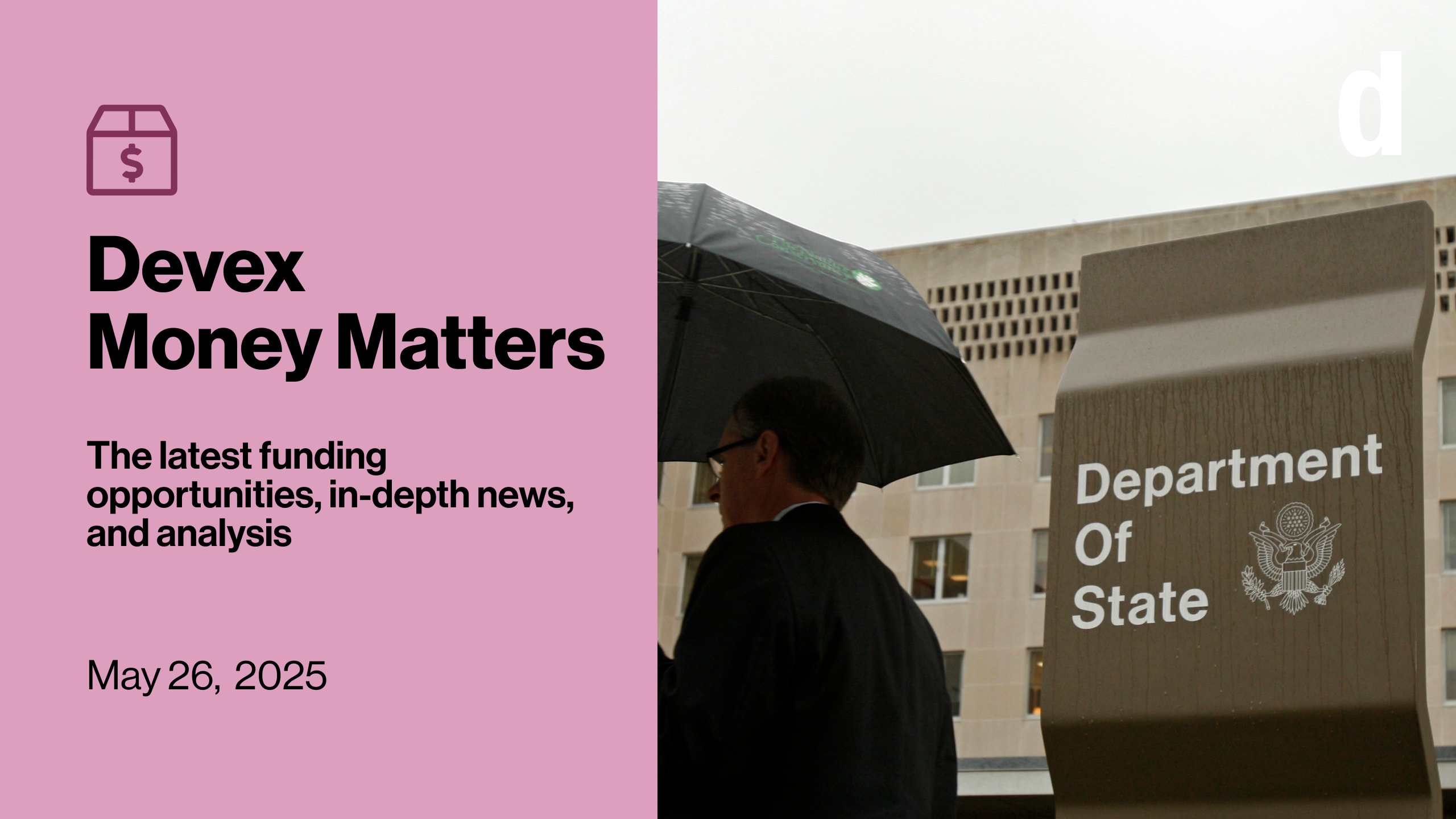
Welcome to our last Money Matters of 2022. It’s been an eventful time for the aid sector, in which funders’ priorities have shifted suddenly. We look at what the biggest donors spent their money on during the last 12 months.
Money Matters will take a break over the Christmas and New Year period. We will be back with you all on Jan. 9, 2023.
Funder focus
A plethora of crises hit countries in 2022: from Russia’s war in Ukraine to a food crisis, to a global economic crisis that is threatening to turn into a recession. In the midst of all this volatility, some key donors are reducing their development assistance, with the U.K. cutting bilateral aid by 30%, and Germany cutting its 2023 development budget by €190 million ($201.5 million.)
My colleague Miguel Antonio Tamonan digs into the numbers to provide insight into what the major bilateral and multilateral donors funded and prioritized in 2022.
Read: What the major bilateral and multilateral donors funded in 2022 (Pro)
+ Try out Devex Pro Funding today with a free five-day trial, and explore funding opportunities from over 850 sources in addition to our analysis and news content.
Social status
Twitter has emerged as a crucial tool for the world of global development — from communicating during moments of crisis to becoming an organizing tool for activists advocating for human rights.
This is a preview of Devex Money Matters
Sign up to this weekly newsletter and get the latest in development funding in your inbox every Monday.
Since Elon Musk’s $44 billion acquisition of the social network in October, he has instituted a number of policy changes to the way the platform works. He also reduced the number of people that work at Twitter by almost half.
My colleague Catherine Cheney and I spoke to former employees and experts to understand what Musk's radical reorganization could mean for global development.
Read: What the Twitter shake-up means for global development (Pro)
From the archives: A globaldev guide to new social media
Featured opportunity: Health care funding in Africa
The U.S. Agency for International Development is offering $415 million new funding for primary health care support in Côte d’Ivoire, Ghana, Kenya, Malawi, and Nigeria. The new cash will be in partnership with the U.S. President’s Malaria Initiative and U.S. President’s Emergency Plan for AIDS Relief, the agency said.
See more funding opportunities →
Funding activity
ADB, CIF, GCF. $73M to promote renewable energy in Cambodia.
EU. $17M (€16M) to increase access to mental health and psychosocial support services in Afghanistan.
CoE. $53M (€50M) to strengthen democratic governance and protect human rights in Ukraine.
UN. $74.9M to ensure food security and improve nutrition in Sri Lanka.
WB. $304.9M for better sanitation and hygiene facilities in Tanzania.
‘Sickout’ at USAID
A workforce dispute has caused major disruption inside USAID’s Bureau for Global Health, with staffers threatening to call in sick en masse.
My colleague Michael Igoe got hold of emails that reveal how USAID’s lawyers and leadership threatened to take disciplinary action against staffers who did not turn up for work. Follow-up emails appeared to soften the tone of the agency’s response.
“Within the Global Health bureau, we have been engaging with our valued institutional support contractors who have raised questions about their contract transition. As part of those conversations, USAID has provided information about federal government regulations around collective work actions,” a spokesperson tells Michael.
Read: USAID warns against striking as labor dispute roils health bureau
ICYMI: Contractors say USAID forcing them into new jobs with fewer benefits
Challenging localization
Burdensome application requirements on top of inflexible funding from large donors, including USAID, threatens to muscle out local organizations in Central America, my colleague Teresa Welsh reports.
Funding goes to large international implementers that often lack the appropriate on-the-ground context, local organizations say. More frustrating still, those big implementers often mine local NGOs for knowledge without making them feel like true partners, she writes.
Read: Localization challenges in Central America (Pro)
Opinion: Localization isn't working. Here's why
+ Not a Devex Pro member yet? Unlock Pro pieces by starting your 15-day free trial today.
Model development?
What models out there can be emulated when it comes to funding small grants to communities and NGOs in the global south?
Speaking at a Devex Pro Live event recently, leaders from World Connect and Spark MicroGrants along with folks from the African Visionary Fund argued that their model has proved resilient and successful and can be scaled up so that it is used to distribute hundreds of millions, instead of just millions, reports my colleague David Ainsworth.
Watch: What does effective local funding look like? (Pro)
Background reading: Donors, here's how local NGOs want you to fund (Pro)
Sign up to Money Matters for an inside look at the biggest stories in development funding.








